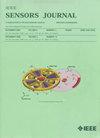Mechanism-Constrained Multistage Recursive Soft Sensor Framework for Slab Temperature Prediction in Reheating Furnace
IF 4.3
2区 综合性期刊
Q1 ENGINEERING, ELECTRICAL & ELECTRONIC
引用次数: 0
Abstract
Slab temperatures are difficult to measure directly in real time during the heating process in the reheating furnace. This article analyzes the slab heating process as a multistage manufacturing system (MMS) and proposes a soft sensor framework named mechanism-constrained multistage recursive network (MC-MRN) to predict slab temperature. The proposed method first uses the mechanism model to generate label data for each stage as the pretraining basis and introduces a new prediction regularization term in its loss function using the mechanism information to guide and constrain the feature extraction process so that the extracted features more comprehensively reflect the original data and its stage information. Furthermore, based on the physical relationship between stages, we connect the pretrained models of each stage in series and input the features containing the production information from all stages into the prediction network for fine-tuning, thereby constructing an overall soft sensor model framework. This design ensures that the framework structure aligns with the physical structure of the reheating furnace, and the constraints of the mechanism model enhance the interpretability and reliability of the framework, ensuring that its predictions remain within a reasonable range consistent with the laws of physics. The experimental results show that the MC-MRN soft sensor framework, after fine-tuning, demonstrates high accuracy in slab temperature prediction.加热炉板坯温度预测的机构约束多级递推软测量框架
在加热炉加热过程中,板坯温度难以直接实时测量。本文将板坯加热过程作为一个多阶段制造系统(MMS)进行分析,提出了一种基于机构约束的多阶段递归网络(MC-MRN)的软测量框架来预测板坯温度。该方法首先利用机制模型生成各阶段的标签数据作为预训练基础,并在其损失函数中引入新的预测正则化项,利用机制信息指导和约束特征提取过程,使提取的特征更全面地反映原始数据及其阶段信息。进一步,基于各阶段之间的物理关系,将各阶段预训练模型串联起来,将各阶段包含生产信息的特征输入到预测网络中进行微调,从而构建整体软测量模型框架。本设计保证了框架结构与加热炉物理结构的一致性,机制模型的约束增强了框架的可解释性和可靠性,保证了其预测结果保持在符合物理规律的合理范围内。实验结果表明,MC-MRN软传感器框架经过微调后,具有较高的板坯温度预测精度。
本文章由计算机程序翻译,如有差异,请以英文原文为准。
求助全文
约1分钟内获得全文
求助全文
来源期刊

IEEE Sensors Journal
工程技术-工程:电子与电气
CiteScore
7.70
自引率
14.00%
发文量
2058
审稿时长
5.2 months
期刊介绍:
The fields of interest of the IEEE Sensors Journal are the theory, design , fabrication, manufacturing and applications of devices for sensing and transducing physical, chemical and biological phenomena, with emphasis on the electronics and physics aspect of sensors and integrated sensors-actuators. IEEE Sensors Journal deals with the following:
-Sensor Phenomenology, Modelling, and Evaluation
-Sensor Materials, Processing, and Fabrication
-Chemical and Gas Sensors
-Microfluidics and Biosensors
-Optical Sensors
-Physical Sensors: Temperature, Mechanical, Magnetic, and others
-Acoustic and Ultrasonic Sensors
-Sensor Packaging
-Sensor Networks
-Sensor Applications
-Sensor Systems: Signals, Processing, and Interfaces
-Actuators and Sensor Power Systems
-Sensor Signal Processing for high precision and stability (amplification, filtering, linearization, modulation/demodulation) and under harsh conditions (EMC, radiation, humidity, temperature); energy consumption/harvesting
-Sensor Data Processing (soft computing with sensor data, e.g., pattern recognition, machine learning, evolutionary computation; sensor data fusion, processing of wave e.g., electromagnetic and acoustic; and non-wave, e.g., chemical, gravity, particle, thermal, radiative and non-radiative sensor data, detection, estimation and classification based on sensor data)
-Sensors in Industrial Practice
 求助内容:
求助内容: 应助结果提醒方式:
应助结果提醒方式:


